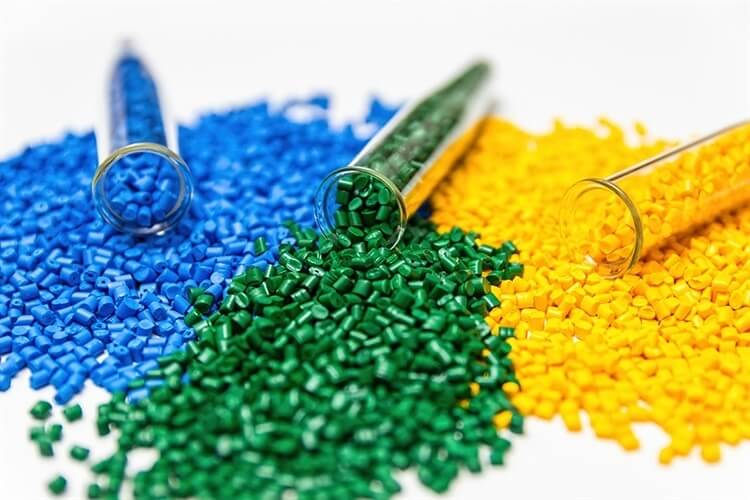Checking Out the Varied Applications and Benefits of Polymers in Different Industries
Polymers, with their varied variety of buildings and capabilities, have actually come to be indispensable in numerous markets, each gaining unique advantages from their application. From improving security and performance in the vehicle market to reinventing clinical gadgets in the medical care sector, polymers play an essential function.
Automotive Market Applications
Polymers play an essential role in boosting the performance and toughness of numerous components within the automobile market. One prominent usage of polymers in the auto sector is in the production of lightweight components.

Health Care Market Benefits
In various health care applications, the benefits of using polymers are extensively identified for their varied array of beneficial residential or commercial properties. Polymers play an important function in the health care market because of their adaptability, biocompatibility, and cost-effectiveness. Among the primary advantages of polymers in healthcare is their ability to be customized to particular demands, such as adaptability, sturdiness, and biodegradability, making them ideal for a large range of clinical applications.
Polymer-based products are thoroughly utilized in medical devices, such as catheters, implants, prosthetics, and medicine distribution systems, as a result of their biocompatibility and capacity to simulate all-natural tissues. These materials can lower the threat of allergies or beings rejected, enhancing patient safety and security and end results. Furthermore, polymers are lightweight, making them ideal for wearable clinical devices and ensuring person convenience.
Additionally, polymers allow the advancement of ingenious therapy methods, such as hydrogels for tissue design and nanocomposites for targeted medicine distribution. Their ease of processing and sterilization makes them important for preserving high criteria of health in healthcare setups. Overall, the varied benefits of polymers contribute dramatically to developments in clinical technology and client treatment.
Environmental Advantages of Polymers

Moreover, polymers can add to energy cost savings as a result of their light-weight nature. In industries such as transportation, lightweight polymer materials can help in reducing gas intake and greenhouse gas exhausts. In addition, polymers can enable the development my website of energy-efficient products such as insulation materials that boost power preservation in structures.
In addition, polymers play an important function in minimizing water contamination. The use of polymer-based filtering systems can efficiently remove pollutants and description contaminants from wastewater, guarding water sources and ecological communities. On the whole, the ecological benefits of polymers make them important assets in advertising sustainability and environmentally friendly practices throughout various industries.
Polymers in Electronic Devices and Modern Technology
Thinking about the enhancing demand for innovative and sustainable services in modern-day markets, the integration of sophisticated polymer modern technologies in the realm of electronics and modern technology has emerged as a critical strategy for driving performance and efficiency. Polymers have changed the electronics sector by allowing the manufacturing of lighter, extra adaptable, and resilient digital gadgets. From smartphones to clinical devices, polymers play a critical role in improving product layout and functionality.
One substantial advantage of polymers in electronic devices is their insulating buildings, which assist shield delicate digital components from environmental variables and electrical disturbance. Additionally, polymers are crucial in the development of versatile display screens, wearable innovation, and printed electronics, providing limitless opportunities for creating wise and interconnected devices.
Moreover, the use of polymers in digital packaging has brought about developments in miniaturization and thermal administration, boosting the overall performance and integrity of digital systems. As technology remains to progress, the versatility and adaptability of polymers will most certainly drive further advancement in the electronic devices industry, shaping the future of technology.
Function of Polymers in Building and Facilities
Polymers offer numerous benefits in the building industry due to their versatility, durability, and cost-effectiveness. One vital function of polymers in building and construction is their usage in coverings and sealants, giving security against ecological aspects about his such as wetness, UV radiation, and deterioration.
In addition, polymers play a crucial function in sustainable building and construction methods by enabling the advancement of energy-efficient frameworks. Protecting materials made from polymers assist regulate interior temperatures, lowering the need for home heating and cooling down systems and ultimately reducing power usage. The usage of polymer-based composites in facilities projects such as bridges and roads improves their long life and lowers maintenance costs. Generally, the incorporation of polymers in construction and infrastructure showcases their substantial impact on contemporary engineering practices.
Conclusion
To conclude, polymers play a critical duty in various sectors such as auto, health care, environmental, electronic devices, and construction. Their functional residential or commercial properties make them useful in creating ingenious options and items. From enhancing gas effectiveness in automobiles to enhancing medical devices, polymers offer countless benefits. In addition, their effect on minimizing waste and promoting sustainability highlights their importance in modern-day applications. The extensive use polymers shows their considerable contribution to advancing technology and boosting lifestyle.
Comments on “Polymers in Healthcare: Improving Medical Devices and Treatments”